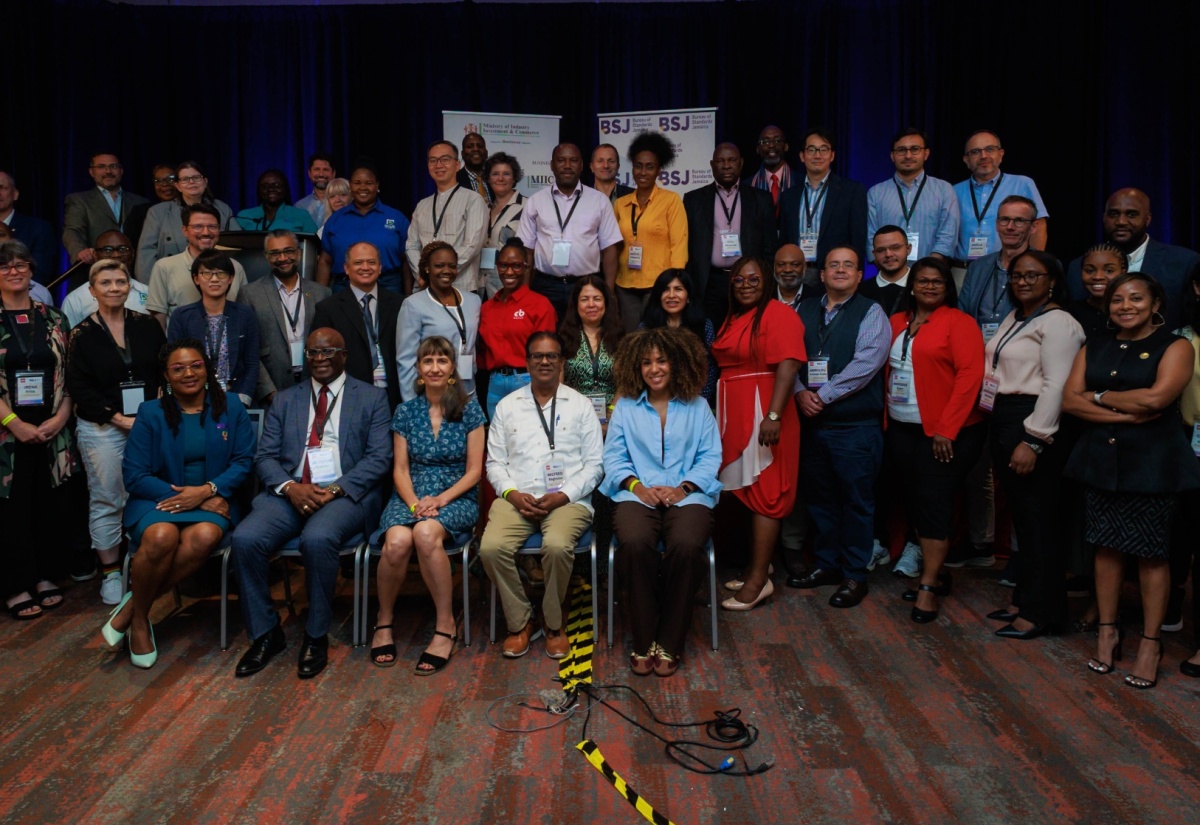Jamaica Hosts ISO Technical Committee Meetings
By: , October 23, 2025The Full Story
Standardisation representatives from more than 30 countries gathered in Montego Bay, St. James, from October 13 to 17 for the International Organization for Standardization (ISO) Technical Committee 323 (Circular Economy) meetings.
Hosted by the Bureau of Standards Jamaica (BSJ), the high-level event attracted professionals, academics, policymakers, environmental experts, and private-sector leaders, all working towards reshaping global production and consumption patterns.
It coincided with the global observance of World Standards Day on October 14.
The ISO/TC 323 Committee leads the development of international standards that guide the transition to a circular economy, an approach focused on eliminating waste and encouraging the continual reuse of resources.
Its main aim is to define key principles and terminology for circular economy practices, provide tools for measuring circularity, and guide both governments and organisations in implementing circular models that support sustainable growth.
Speaking at the week-long meeting held at the Dreams Rose Hall Resort and Spa, Executive Director of the BSJ, Dr. Velton Gooden, said the event serves as a catalyst for transformation.
“By hosting ISO TC 323, Jamaica is signalling its commitment to building a future where resources are better managed, industries are more competitive, and sustainability is embedded in how we produce, consume and innovate,” he said.
He said that the outcomes from the ISO TC 323 meetings will strengthen Jamaica’s manufacturing, agro-processing and export sectors through efficient resource use, reduced production costs, and alignment with global standards.
The discussions are also expected to promote research, innovation and stronger collaboration between industry and academia.
Facilitator of Jamaica’s National Mirror Committee at the BSJ, Shane Slater, in his address noted that the session marked the start of the drafting of the ISO 59001 Circular Economy Management Systems – Requirements standard.
He explained that the new standard will provide organisations with a structured framework to integrate circularity into their operations and evaluate performance.
The standard, Mr. Slater explained, “will offer a management system approach similar to ISO 9001 and ISO 14001, allowing businesses to embed circular practices into their existing quality and environmental management systems. This integration will help organisations measure their progress, improve resource efficiency, and demonstrate compliance with international sustainability benchmarks, ultimately driving competitiveness and innovation across industries.
The five-day event also featured a National Workshop on Circular Economy, which explored best practices both globally and locally.
From this session, attendees gained insight into Brazil’s National Circular Economy Plan, developed through extensive public engagement, as well as the Indonesian delegation’s presentation on the role of standardisation in bridging the gap between circular economy theory and practice.
Also present were representatives from the National Environment and Planning Agency (NEPA), who outlined Jamaica’s legislative frameworks supporting environmental governance.
There were also presentations from J. Wray and Nephew Limited, Caribbean Broilers Group, and Recycling Partners of Jamaica, demonstrating measures geared towards supporting global frameworks that will define future economic and environmental resilience.




